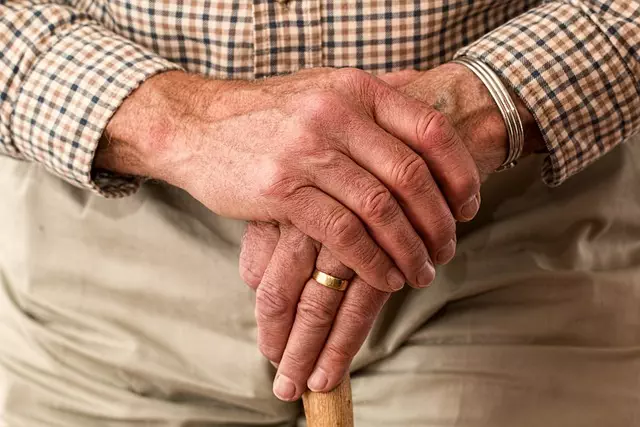Elderly Companion Services significantly improve the quality of life for seniors by offering tailored companionship that addresses loneliness and fosters meaningful connections. These services encompass a range of engaging interactions, from casual conversations to shared interests or outings, all designed to match individual preferences and promote mental and emotional well-being. They are crucial in combating social isolation, supporting cognitive functions, and encouraging social engagement, thereby empowering seniors to maintain their independence and dignity as they age in place. These services provide adaptable support options, from occasional visits to regular companionship, ensuring a sense of security and positive solitude. They are an integral part of senior care, offering a lifeline that enriches daily life and supports the holistic well-being of older adults. By mitigating loneliness, these services not only enhance emotional health but also contribute to mental clarity and cognitive vitality through active engagement. They create opportunities for storytelling and shared experiences, ensuring that companionship is personalized and respectful of each elder's history and preferences. These programs often partner with community organizations to maximize their impact, serving both urban and rural elderly populations and strengthening community bonds while highlighting the mutual benefits of intergenerational relationships. Overall, Elderly Companion Services are a vital component in uplifting the lives of seniors, offering them a sense of purpose, belonging, and a richer connection with their communities.
Each year, countless elders face the challenge of loneliness, a silent struggle that can impact their mental and physical health. Recognizing this growing concern, initiatives like elderly companion services have emerged as beacons of companionship and support. This article delves into the transformative power of friendly visits and volunteer programs, offering insights into how these services not only enrich the lives of lonely elders but also foster meaningful connections within our communities. Join us as we explore ‘Friendly Visits to Lonely Elders,’ examining the role of elderly companion services in embracing solitude, building bonds, and creating activities that bring joy and a sense of purpose to seniors’ daily lives.
- Embracing Solitude: The Role of Elderly Companion Services in Enriching Lives
- Building Bonds: Strategies for Friendly Visits with Isolated Elders
- Volunteer Programs and Their Impact on Lonely Seniors
- Creating Meaningful Engagements: Activities and Interactions for Elders Through Companion Services
Embracing Solitude: The Role of Elderly Companion Services in Enriching Lives

Elderly companion services play a pivotal role in addressing the needs of seniors who experience loneliness, often providing a vital lifeline that enriches their daily lives. These services are designed to offer companionship tailored to each individual’s preferences and abilities, ensuring that interactions are meaningful and enjoyable. Trained companions can engage with elders through various activities, from simple conversations to shared hobbies or outings, fostering a sense of connection and purpose. This personalized attention not only combats the detrimental effects of isolation but also supports their overall well-being by promoting social engagement, enhancing cognitive functions, and improving emotional health.
Moreover, these services are adaptable to the varying levels of need within the elderly population, offering a flexible range of support from occasional visits to regular, sustained companionship. They enable seniors to embrace solitude in a positive way, providing them with a sense of security and companionship that allows them to live more fulfilled lives. The role of elderly companion services is not merely to fill gaps in an elder’s schedule but to enrich their experiences, allowing them to maintain independence and dignity while aging in place with comfort and support.
Building Bonds: Strategies for Friendly Visits with Isolated Elders

Engaging with isolated elders through friendly visits can significantly enhance their quality of life and foster meaningful connections. Volunteers and caregivers providing elderly companion services play a pivotal role in this endeavor. To build bonds effectively, it’s important to approach each visit with thoughtfulness and an open heart. Start conversations based on the elder’s interests and experiences; active listening demonstrates respect and interest in their life story. Simple activities like sharing a meal, playing games, or working on crafts together can become cherished moments. Consistent scheduling of visits helps establish trust and anticipation for the interaction. Additionally, involving elders in community events or facilitating small group gatherings can expand their social circle beyond the one-on-one visits. Encouraging volunteers to share personal stories and invite elders to recount their own encourages a reciprocal exchange of experiences, enriching the visit for both parties. Elderly companion services that integrate these strategies not only combat loneliness but also contribute to the overall well-being of elderly individuals, providing them with a sense of purpose and belonging within their local community.
Volunteer Programs and Their Impact on Lonely Seniors

Volunteer programs offering companion services for the elderly have emerged as a beacon of social engagement and emotional support in communities across the nation. These initiatives are specifically designed to alleviate the loneliness often experienced by seniors, many of whom reside alone or find it challenging to maintain regular social interactions due to health or mobility issues. The impact of these programs is profound; volunteers provide not only company but also a sense of belonging and purpose. Through regular visits, shared activities, and meaningful conversations, volunteers help to reduce feelings of isolation and depression among lonely elders. This companionship can lead to tangible benefits such as improved mental health, increased physical activity, and even a longer lifespan due to the positive effects of social interaction.
The effectiveness of elderly companion services is underpinned by their adaptability to individual needs. Volunteers are trained to respect each senior’s preferences, history, and boundaries, fostering genuine connections that resonate with the unique life experiences of each elder. These programs often collaborate with local organizations and care facilities to expand their reach, ensuring that a wide array of seniors, from those in urban areas to those in rural settings, can benefit from this valuable service. The ripple effects of these volunteer efforts extend beyond the immediate companionship, promoting a sense of community cohesion and highlighting the mutual benefits of intergenerational bonding. As a result, elderly companion services not only enhance the well-being of seniors but also enrich the lives of volunteers who contribute to combating loneliness in an increasingly age-diverse society.
Creating Meaningful Engagements: Activities and Interactions for Elders Through Companion Services

Engaging with elderly companion services can significantly enhance the quality of life for lonely seniors, providing them with companionship and a sense of purpose. These services are designed to create meaningful engagements tailored to each individual’s interests and abilities. By facilitating activities ranging from shared hobbies like gardening or knitting to reminiscing about past experiences, companion services help maintain cognitive sharpness and emotional well-being. The companions act as a bridge between the elderly and the wider community, ensuring that these individuals remain socially active and connected. Moreover, the presence of a reliable and caring companion can alleviate feelings of isolation and loneliness, which are prevalent among the aging population. These services not only offer company but also support daily routines, encourage healthy lifestyle choices, and provide a listening ear for emotional support, thereby enriching the lives of the elderly in a holistic manner.
Community-minded initiatives, such as the provision of elderly companion services, play a pivotal role in addressing the issue of loneliness among the senior population. By implementing strategies for friendly visits and fostering volunteer programs that offer meaningful engagements, these services not only enrich the lives of isolated elders but also create vibrant social connections that can have profound benefits for their mental and emotional well-being. As our societies age, the demand for such compassionate and engaging companion services will undoubtedly increase, highlighting their indispensable contribution to the social fabric and overall health of the elderly. It is through collective efforts that we can ensure a network of support and companionship for those who have spent their lives enriching our communities, thus providing them with the dignity and joy they deserve in their later years.


